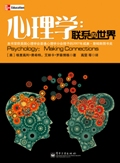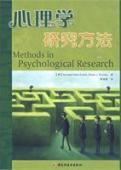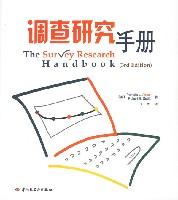
《对"伪心理学"说不》第1版出版于1983年,20多年来一直被奉为心理学入门经典,在全球顶尖大学中享有盛誉,现在呈现在读者面前的是第8版。这本书并不同于一般的心理学导论类教材,很多内容是心理学课堂上不曾讲授的,也是许多心理学教师在教学中感到只可意会而不可言传的。作者正是从此初衷出发,以幽默生动的语言,结合一些妙趣横生、贴近生活的实例,深入浅出地介绍了可证伪性、操作主义、实证主义、安慰剂效应、相关和因果、概率推理等心理学中的基本原则。与上一版相比,第8版更新了最新的研究资料和实例,扩展了信度、效度、元分析、随机取样与随机分配等问题的讨论。
对“伪心理学”说不(第8版)
作者:(加)基思•斯坦诺维奇 著,窦东徽,刘肖岑 译出版:人民邮电出版社 2012-1
页数:254页 250000字
ISBN:9787115263254
定价:¥28.00
原書名:How to Think Straight about Psychology(9th Edition) by Keith E. Stanovich (Aug 8, 2009)
第七版书名:与“众”不同的心理学:如何正视心理学 (网上可下载)
内容简介
在今天的大众媒体和图书市场上,到处充斥着关于潜能提升、心理操控、色彩星座、催眠读心等伪装成心理学的主题,更有一些伪心理学家、所谓的心理治疗师打着心理学的旗号欺世盗名,从中渔利。在浩如烟海、良莠不齐的心理学信息面前,如何拨除迷雾,去伪存真,成为一个明智的心理学信息的消费者呢?《对"伪心理学"说不》将教给你科学实用的批判性思维技能,将真正的心理学研究从伪心理学中区分出来,告诉你什么才是真正的心理学。《对"伪心理学"说不》不仅适合于心理学专业的学生,有助于建立心理学研究中必要的批判性思维技能与意识,而其通俗易读性也非常适合所有对心理学感兴趣的读者,它将帮助你纠正对心理学的种种误解,学会独立地评估心理学信息,用科学的精神和方法理解自己和他人的行为。此外,由于心理学与其他学科的共通性,《对"伪心理学"说不》也不失为一本精彩有趣的科学哲学类读物。
编辑推荐
《对"伪心理学"说不》编辑推荐:在星座血型、色彩性格等“伪心理学”大行其道的时代,《对"伪心理学"说不》告诉你什么才是真正的心理学。清华大学系主任强烈推荐给一般读者的心理学入门读物。科学松鼠会推荐的心理学入门书籍。全球300多所心理学教育机构采用。畅销二十余年,经久不衰,在心理学领域享有盛誉的经典著作。媒体推荐
这本“与众不同的心理学”教科书,总结了心理学家的职业特质,让每一位读者都有机会去理解我们心理学家是如何去思考、分析和解读人类的行为和心理的。每一章都将一个常识的、朴素的、直觉的有关人类心理的分析和思考与一个科学的、严谨的、心理学的分析和思考相对比,以帮助读者理解心理学家的分析逻辑和研究思路。——彭凯平教授(清华大学心理学系系主任,美国加州大学伯克利分校心理学系终身教授)
这本书在第一版时,我已经开始把它推荐给我的学生,那是十多年前的事了。现在它已经出到第八版了,可见它深受几代老师及学生的喜爱。阅读本书,可以让人们认识到及分辨出什么样的研究及数据才是真正科学的及可信的。为此,我不单只把它推荐给大专院校心理学系的学生作为研究方法课的教材,也强烈推荐给一般读者。
——杨中芳教授(中山大学心理学系前系主任)
作者简介
作者:(加)基思•斯坦诺维奇 译者:窦东徽 刘肖岑基思•斯坦诺维奇(Keith E.Stanovich),目前担任加拿大多伦多大学人类发展与应用心理学的国家首席教授,他的研究领域是推理和阅读的心理学机制。他于2010年获得格威尔美尔教育奖(Grawemeyer Award in Education)。他至今已发表了200多篇科学论文。在一项对于论文引用率的调查中,斯坦诺维奇位列引用率最高的50位发展心理学家之一,也是25位最高产的教育心理学家之一。他所撰写的《对“伪心理学”说不》(How to Think Straight about Psychology)一书被全球300多所心理学高等教育机构采用。
目录
序言第1章 心理学充满生机(在科学阵营里左右逢源)
弗洛伊德问题
现代心理学的多样性
多样性的含义
科学的统一性
那么,什么是科学?
系统的实证主义
公共性的、可检验的知识:可重复性和同行评审
实证性的、可解决的问题:科学家对于可检验理论的研究
心理学和世俗智慧:“常识”的误区
心理学是一门年轻的科学
小结
第2章 可证伪性--如何捕捉头脑中的小精灵
理论和可证伪性标准
敲门节奏理论
弗洛伊德与可证伪性
小精灵
不是所有的证实都等价
可证伪性和世俗智慧
承认错误的自由
想法不值钱
科学中的错误:接近真理
小结
第3章 操作主义和本质主义--“但是,博士,这到底是什么意思?”
为什么科学家不是本质主义者
本质主义者喜欢咬文嚼字
操作主义者将概念和可观测事件联系在一起
信度和效度
直接和间接的操作性定义
科学概念的演进
心理学领域的操作性定义
作为人性化力量的操作主义
本质主义问题和对心理学的误解
操作主义和心理学问题的措辞
小结
第4章 见证和个案研究证据--安慰剂效应和了不起的兰迪
个案研究的地位
为什么见证叙述毫无价值:安慰剂效应
“鲜活性”问题
单一个案的压倒性影响
了不起的兰迪:以彼之道,还施彼身
见证为伪科学打开方便之门
小结
第5章 相关和因果--用“烤箱法”避孕
第三变量问题:戈德伯格与糙皮病
为什么戈德伯格的证据更好
方向性问题
选择性偏差
小结
第6章 让一切置于控制之下--聪明汉斯的故事
斯诺与霍乱
比较、控制和操纵
随机分配与操纵共同定义了真实验
控制组的重要性
聪明汉斯--神马的故事
20世纪90年代的聪明汉斯
对变量分开考察:特殊条件
直觉物理学
直觉心理学
小结
第7章 “但是这不是真实的生活!”--“人为性”批评和心理学
为什么自然性并非总是必要的
对“随机取样”的误解
随机分配和随机样本的区别
理论研究和应用研究的异同
心理学理论的应用
“大二学生”问题
正确看待“真实生活”和“大二学生”问题
小结
第8章 避免爱因斯坦综合症--聚合性证据的重要性
关联性原则
消费者规则:警惕关联性原则的无效性
“跃进”模式与渐进整合模式的比较
聚合性证据:在瑕疵中进步
心理学中的聚合性证据
科学共识
研究方法和聚合性原则
向更有效的研究方法迈进
不要对矛盾数据感到绝望
小结
第9章 打破“神奇子弹”的神话--多重原因的问题
交互作用
单一原因解释的诱惑
小结
第10章 人类认知的阿喀琉斯之踵--概率推理
“某某人”统计学
概率推理以及对心理学的误解
有关概率推理的心理学研究
对概率信息的不充分利用
样本大小信息的误用
赌徒谬误
再谈统计与概率
小结
第11章 偶然性在心理学中扮演的角色
试图解释偶然性事件的倾向
解释偶然性:错觉相关和控制错觉
偶然性和心理学
巧合
个人的巧合
接受错误以减少错误:临床预测与统计预测
小结
第12章 不招人待见的心理学
心理学的形象问题
心理学和超自然心理学
自助类读物
菜谱式知识
心理学和其他学科
我们是自己最坏的敌人
每个人不都是心理学家吗
抵制科学心理学的根本原因
结束语
参考文献
How to Think Straight About Psychology
Keith Stanovich (1989)
PSYCHOLOGY IS ALIVE AND WELL
In the preceding chapter we suggested, but did not explicitly state, a fact of fundamental importance: psychology is a data-based scientific discipline. Understanding the implications of this fact is the single most important step that a layperson can take in developing the ability to think straight about psychology.
People outside the discipline commonly deny that psychology is a science. Some of these objections are put forth quite strongly and probably affect public opinion. Attempts to convince the public that psychology cannot be a science often stem from two sources. The first source includes many of the purveyors of bogus psychology, who have a vested interest in maintaining the public's attitude that anything goes in psychology, that there are no rational criteria for evaluating psychological claims. This is the perfect atmosphere in which to market such offers as "Lose weight through hypnosis," "Develop your hidden psychic powers," "Learn French while you sleep," and the many other parts of the multimillion-dollar self help industry that either are not based on scientific evidence or, in many cases, are actually contradicted by much available evidence.
Most people who claim that psychology is not a science derive no material benefit from their belief, however. The resistance from this second source simply reflects an understandable tendency to oppose the expansion of science into areas where unquestioned authorities and "common sense" have long reigned. History provides many examples of initial public resistance to the use of science rather than philosophical speculation, theological edict, or folk wisdom to explain the natural world. Each science has gone through a phase of resistance to its development. Hypatia of Alexandria, the last scholar to work in the great library there, was murdered by members of the early Christian church because her interest in science and leaming was associated with paganism. Learned contemporaries of Galileo refused to look into his new telescope because the existence of the moons of Jupiter would have violated their philosophical and theological beliefs. For centuries, the understanding of human anatomy progressed only haltingly because of lay and ecclesiastical prohibitions against the dissection of human cadavers. Charles Darwin was repeatedly denounced. Paul Broca's Society of Anthropology was opposed in France because knowledge about human beings was thought to be subversive to the state.
Each scientific step to greater knowledge about human beings has evoked opposition. This opposition eventually dissipated, however, when people came to realize that science does not defile humanity by its investigations but instead contributes to human fulfillment by widening the sphere of knowledge. Who now believes that astronomy's mapping of the galaxies and intricate theories about the composition of distant stars destroy our wonder at the universe? Who would substitute the health care available in their community for that available before human cadavers were routinely dissected? An empirical attitude toward the stars or the human body has not diminished humanity. More recently, Darwin's evolutionary synthesis has laid the foundation for startling advances in genetics and biology. Nevertheless, as we get closer to the nature of human beings and their origins, vestiges of opposition remain. In the United States, religious extremists continue to advocate the teaching of creationism in the public schools, and surveys show that the scientific fact that humans evolved from lower organisms is not accepted by a large portion (in some surveys, a majority) of the public. If evolutionary biology, with its long and impressive record of scientific achievements, can still engender public opposition, is it any wonder that psychology, the most recent discipline to bring long-held beliefs about human beings under scientific scrutiny, currently provokes people to deny its validity?
Before we can acknowledge that psychology is a science, we must understand what science is. Indeed, many who deny psychology the status of a science are themselves quite confused about the nature of science. Every undergraduate psychology instructor has encountered the beginning student who is majoring in psychology "because I don't like science." The instructor is, of course, prepared for the student's incredulity when informed that psychology is indeed a member of the sciences (I can't believe I have to take statistics!). When the instructor asks, "Have you taken much biology or chemistry since coming to the university?" the reply is very predictable: Oh no, I'vealwaysavoided science. The student knows nothing about the sciences but is absolutely certain that psychology is not one of them. Unfortunately, this attitude characterizes many of psychology's critics.
WHAT, THEN, IS SCIENCE?
To answer the question, What isscience?we can begin by dealing with what science is not. In this way, we can rid ourselves of the vast majority of common misconceptions. First, science is not defined by subject matter. Any aspect of the universe is fair game for the development of a scientific discipline. This includes all aspects of human beings, including their behavior and brain functions. We cannot divide the universe into "scientific" and "nonscientific" topics. Although strong forces throughout history have tried to place human beings outside of the sphere of scientific investigation, they have been unsuccessful, as you shall see. The reactions against psychology as a scientific discipline probably represent the modem remnants of this ancient struggle. A claim that human behavior cannot be studied scientifically-which would rule psychology out of the sciences by definition-should not be accepted as a given but should be viewed as a hypothesis that can be evaluated. In fact, this hypothesis has been evaluated. It is false.
Scienceis also not defined by the use of particular experimental apparatus. It is not the test tube, the computer, the electronic equipment, or the investigator's white coat that defines science. These are the trappings of science, but they are not its defining features. (If this were the case, there would be no question about psychology's status because psychology departments in all major universities are full of computers, chemicals, and electronic equipment Of all types.)
Finally,scienceisnot defined by a specific method. Rather it is a way of thinking about and observing the universe that leads to a deep understanding of its workings. The principles governing science are general and broad in scope. They are not sequences of rigid rules.
In this chapter we will discuss three important and interrelated features that definescience.They are (1) the use of systematic empiricism, (2) the production of public knowledge, and (3) the examination of solvable problems. Although we will examine each feature separately, remember that the three connect to form a coherent general structure. (For a more detailed discussion of the general characteristics of science, see the works of Bronowski, Popper, Cournaud, and Medawar in the references section of this book.)
Systematic Empiricism
If you look up the wordempiricismin any dictionary, you will find that it means "the practice of relying on observation." Although this seems clear enough, there is an even simpler way of definingempiricism.The empirical attitude in science can be summarized by the phrase "Let's take a look." Scientists find out about the world by examining it. The fact that this may seem obvious to You is an indication of the spread of the scientific attitude in the last couple of centuries. In the past, it has not always seemed so obvious. Recall the refusal to look into Galileo's telescope. It was long thought that the way to know about the world was through pure thought and argument or appeal to authority. Galileo claimed to have seen moons around the planet Jupiter. Another astronomer, Francesco Sizi, attempted to refute Galileo, not with observations, but with the following argument:
There are seven windows in the head,two nostrils, two ears, two eyes and a mouth;so in the heavens there are two favorable stars, two unpropitious, two luminaries, and Mercury alone undecided and indifferent. From which and many other similar phenomenaOf nature such as the seven metals, etc., which it were tedious to enumerate, we gatherthat the number of planets is necessarily seven....Besides, the Jews and other ancientnations, as well as modern Europeans, have adopted the division of the week into sevendays, and have named them from the seven planets: now if we increase the number ofplanets, this whole system falls to the ground....Moreover, the satellites are invisibleto the naked eye and therefore can have no influence on the earth and therefore wouldbe useless and therefore do not exist. (Holton & Roller, 1958, p. 160)
The point is not that the argument is laughably idiotic, but that it was seen as a suitable rebuttal to an actual observation. We laugh now because we have the benefit of hindsight. Three centuries of the demonstrated power of the empirical approach give us an edge on poor Sizi. Take away those years of empiricism and many of us may have been there nodding our heads and urging him on. No, the empirical approach is not necessarily obvious, which is why we often have to teach it, even in a society that is dominated by science.
Empiricism pure and simple is not enough, however. Note that the heading for this section issystematicempiricism. Observation is fine and necessary. But pure, unstructured observation of the natural world will not lead to scientific knowledge. Write down every observation you make from the time you get up until the time you go to bed on a given day. When you finish, you will have a great number of facts, but you will not have a greater understanding of the world. Scientific observation is termedsystematicbecause it is structured so that the results of the observation reveal something about the underlying nature of the world. Scientific observations are usually theory driven; they test different explanations of the nature of the world. They are structured so that, depending on the outcome of the observation, some theories are supported and others rejected..
We will see more specifically whatsystematicmeans in later chapters. Here, we want to emphasize that psychology has only recently become empirically based and that this has implications for public understanding of the discipline. Psychologist Donald Broadbent (1961) has discussed why the development of psychology means that we must make the transition from armchair speculation about behavior to an empirical orientation in the following:
There are therefore great dangers in any attempt to short-cut the study of behaviour.From all the labours of the past fifty years, three main lessons can perhaps be learnedfor everyday life: and the first of these is that an objective attitude to behavior is possibleand essential if we are not to accept glib generalizations. When, for example, we are toldthat income-tax discourages the working of overtimeinindustry, our response should notbe to ask ourselves if this is intuitively reasonable, but to see whether the records of anactual factory support the statement. When we put the knobs on a gas-stove we should notput them in the place which seems natural to us, but try out a number of arrangementson a large sample of people who might use the stove. In many of the cases in which weblandly make assumptions about human nature, it is possible to get evidence. (p. 202)
Publicly Verifiable Knowledge
Scientific knowledge is public in a special sense. Bypublic,we do not mean that the results of scientific observations are posted on community center bulletin boards. Instead, we refer to the fact that scientific knowledge does not exist solely in the mind of a particular individual. In an important sense, scientific knowledge does not exist at all until it has been publicly submitted to the scientific community for criticism and empirical testing. Knowledge that is considered "special"-the province of the thought processes of a particular individual, immune from scrutiny and criticism by others-can never have the status of scientific knowledge.
Here is where the technical criterion of replication becomes important. In order to be considered in the realm of science, a finding must be presented to the scientific community in a way that enables other scientists to attempt the same experiment and obtain the same results. Scientists use replication to define the idea of public knowledge. It ensures that a particular finding is not due simply to the errors or biases of a particular investigator. In short, for a finding to be accepted by the scientific community, it must be possible for someone other than the original investigator to duplicate it. When a finding is presented in this way, it becomes public. It is no longer the sole possession of the original researcher but is instead available for other investigators to extend, criticize, or apply in their own ways.
John Donne, in his most famous sermon, told us that "no man is an island." In science, no researcher is an island. Each investigator is connected to the scientific community and its knowledge base because the knowledge can be communicated from scientist to scientist. It is this interconnection that enables science to grow cumulatively. Researchers constantly build on previous knowledge in order to go beyond what is currently known., This is possible only if previous knowledge is stated in such a way that any investigator can use it to build on.
By publicly verifiable knowledge,then, we mean findings presented to the scientific community in such a way that they can be replicated, criticized, or extended by anyone in the community. This is a most important criterion not only for scientists, but also for the layperson who, as a consumer, must evaluate scientific information presented in the media. As we will see in chapter 10, one important way to distinguish charlatans and practitioners of pseudoscience from legitimate scientists is that the former often bypass the normal channels of scientific publication and criticism and instead go straight to the media with their "findings." One ironclad criterion that will always work for the public when presented with scientific claims of uncertain validity is the question: Have the findings been published in a recognized scientific journal that employs some type of peer review procedure? The answer to this question will almost always separate pseudoscientific claims from the real thing.
Not all information in scientific journals is necessarily correct, but ithasmet a minimal criterion of peer criticism and scrutiny. Most scientific disciplines publish many different journals (although these journals often vary greatly in quality), so that most scientific ideas can get published somewhere in the legitimate literature if they meet some minimal standards. The idea that only a narrow range of data and theory can get published in science is false. This is particularly true in psychology where journals publish papers on an enormous variety of topics and from a wide variety of theoretical perspectives.
Table 2 lists the names of only a fraction of the journals from which articles are summarized in the publicationPsychological Abstracts.Most of the journals listed in the table are peer reviewed. Peer review is a procedure in which each paper submitted to a journal is critiqued by several scientists who then submit their criticisms to an editor (usually a scientist with an extensive history of work in the specialty area covered by the journal) who decides whether the weight of opinion warrants publication of the paper, publication after further experimentation and statistical analysis, or rejection because the research is flawed or trivial. Most journals carry a statement of editorial policy in each issue, so it is easy to check whether a journal is peer reviewed.
The mechanisms of peer review vary somewhat from discipline to discipline, but the underlying rationale is the same. Peer review is one way (replication is another) that science institutionalizes the attitudes of objectivity and public criticism. Ideas and experimentation undergo a honing process in which they are submitted to other critical minds for evaluation. Ideas that survive this critical process have begun to meet the criterion of public verifiability. Not all ideas published in the journals summarized inPsychological Abstractsare necessarily good or correct, but failure to appear in an established scientific source is a good sign that a claim is unfalsifiable (a topic we will consider in chapter 3), not replicable, or simply wrong. Thus, the consumer of psychological research can rely on the general rule: if empirical support for a psychological claim has not appeared in the established, peer-reviewed journals of psychology, it is highly likely that the claim is bogus.
SolvableProblems
Science deals with solvable, or specifiable, problems. This means that the type of questions that scientists address are potentially answerable with currently available empirical techniques. If a problem is not solvable with the empirical techniques that scientists have at hand, then scientists will not attack it. For example, the question, "Will three-year-old children given structured language stimulation during day care be ready for reading instruction at an earlier age than children not given such extra stimulation?" represents a scientific problem. It is answerable by currently available empirical methods. The question, Are human beings inherently good or inherently evil? is not an empirical question and, thus, is simply not in the realm of science.
You should be aware of two important misunderstandings regarding this third characteristic of science. We have said that science deals only with a certain class of problem-the kind that is empirically solvable. This most definitely does not mean that scientists believe that questions in the realm of science are the only important questions. Unfortunately, nonscientists often make such an inference, though scientists rarely voice such opinions.
Scientists do focus on a certain class of problem, but there is no implied denigration of nonscientific problems in this natural division of labor. Scientists are not concerned that the expert on Thomas Hardy does not set aside a day once in a while to study messenger RNA. On the other hand, it is similarly wrong to infer that the solid-state physicist who does not devote time to the study of Alfred Lord Tennyson'sIdylls of the Kingis denying the importance of literature and poetry. In short, just because scientists do not address nonscientific questions in their professional work, it does not follow that they are unconcerned about such questions. Informed artists are often concerned about current developments in science; so, too, scientists recognize the importance of philosophical debates and the artistic and literary developments that affect our culture.
By saying that scientists tackle solvable problems, we do not mean to imply that different classes of problems are inherently solvable or unsolvable and that this is fixed forever. Quite the contrary: Some problems that are unsolvable, given currently available empirical techniques, may become solvable as theory and empirical techniques become more sophisticated. This is how science in general has developed and how new sciences have come into existence. There is always ample room for disagreement about what is currently solvable. Scientists themselves often disagree on this point as it relates to current problems of ambiguous status. Thus, while all scientists agree on the solvability criterion, they may disagree on its specific applications. Peter Medawar (1967) titled one of his booksThe Art of theSolubleto illustrate that part of the creativity involved in science is finding the problem on the furthest edge of the frontier of human knowledge that will yield to empirical techniques.
Psychology itself provides many good examples of the development from the nonsolvable to the solvable. There are many questions (for instance, How does a child learn to speak the language of his or her parents? Why do we forget things we once knew? How does being in a group change a person's behavior and thinking?) that had been the subjects of speculation for centuries before anyone recognized that they could be addressed by empirical means. As this recognition slowly developed, psychology coalesced as a collection of problems concerning human behavior. Psychological issues gradually became separated from philosophy, and a separate empirical discipline developed.
Thus, the key step in understanding modern psychology is appreciating its implications as theempirical science of human behavior.Beginning students of psychology are often quite confused about just what distinguishes psychology as a discipline. It is not, for example, the focus on human behavior per se, because many other disciplines and professional groups are concerned in some way with human behavior: novelists, anthropologists, and so on. It is the fact that psychology studies human behaviorscientificallythat makes it unique as a discipline.
Many students major in the field of psychology because they want to "help people," but this again is not a defining feature of the field. "Helping people"- although a laudable goal-is really only one of many different applications of psychological knowledge, and many of these applications are outside of the helping professions entirely (for example, applications of psychological knowledge in advertising, in technology design, and in the military). Many other professionals engage in activities designed to "help people" (social workers, nurses, teachers, occupational therapists, pastoral counselors, and the like). Clinical and counseling psychology, however, base their therapeutic techniques on scientifically derived knowledge and evaluate the effectiveness of their techniques by scientific methods. This scientific approach is theonlyfactor that differentiates the application of psychology in the human services domain. Nothing else distinguishes either the study or the practice of psychology. Thus, if psychology were not a science, it would simply have no reason to exist as a discipline.
TABLE 2. A Partial List of Publications Whose Articles Are Summarized in
Psychological Abstracts
Academic Psychology Bulletin Child Behavior Therapy
Acta Psychologica Child Development
Addictive Behaviors Clinical Neuropsychology
Adolescence Clinical Psychologist
Advances in Behavioral Pediatrics Cognition
Advances in Behaviour Research & Cognitive Psychology
Therapy
Aging & Work Cognitive Therapy & Research
American Behavioral Scientist Contemporary Educational
American Journal of Art Therapy Psychology
American Journal of Clinical Counseling Psychologist
Biofeedback
American Journal of Clinical Hypnosis Current Psychological Research
American Journal of Community Developmental Psychobiology
Psychology
American Journal of Family Therapy Developmental Psychology
American Journal of Mental Retardatio Educational and Psychological
Measurement
American Journal of Psychology Educational Psychology
American Journal of Psychotherapy Environment & Behavior
American Psychologist European Journal of Social Psychology
Animal Learning & Behavior Genetic Psychology Monographs
Annual of Animal Psychology Hormones and Behavior
Applied ~Psycholinguistics Human Development
Applied Psychological Measurement Human Factors
Basic & Applied Social Psychology Infant Behavior & Development
Behavioral Assessment Intelligence
Behavioral and Brain Sciences International Journal of Aging & Human
Development
Behavioral Disorders International Journal of Behavioral
Development
Behavioral Engineering International Journal of Eating
Disorders
Behavioral Science International Journal of Group
Psychotherapy
Behavior Modification International Journal of
Psycholinguistics
Behavior Research Methods & International Journal of Psychology
Instrumentation
Behavior Therapy International Journal of Sport
Psychology
Behaviour Research and Therapy International Review of
AppliedPsychology
Biological Psychology Journal for the Theory of Social
Behavior
Brain, Behavior & Evolution Journal of Abnormal Child Psychology
Brain and Language Journal of Abnormal Psychology
British Journal of Clinical Psychology Journal of Affective Disorders
British Journal of Educational Journal of Applied Behavioral Science
Psychology
British Journal of Mathematical & Journal of Applied Developmental
Statistical Psychology Psychology
British Journal of Social Psychology Journal of Applied Psychology
Bulletin of the British Psychological Journal of Applied Social Psychology
Society
Bulletin of the Psychonomic Society Journal of Behavioral Assessment
Canadian Journal of Behavioral Science Journal of Behavioral Medicine
Canadian Journal of Psychology Journal of Black PsychologyTABLE 2 (cont.) A Partial List of Publications Whose Articles Are Summarized in
Psychological Abstracts
Journal of Child Psychotherapy Law & Psychology Review
Journal of Clinical Child Psychology Learning and Motivation
Journal of Clinical Psychology Managerial Psychology
Journal of Community Psychology Memory & Cognition
Journal of Comparative and Merrill-Palmer Quarterly
Physiological Psychology
Journal of Consulting and Clinical Motivation and Emotion
Psychology
Journal of Contemporary Psychotherapy Multivariate Behavioral Research
Journal of Counseling Psychology Neuropsychologica
Journal of Cross-Cultural Psychology New Directions for Methodology of
Social & Behavioral Science
Journal of Economic Psychology Organizational Behavior & Human
Journal of Educational Psychology Performance
Journal of Environmental Psychology Perception
Journal of Experimental Child Perception & Psychophysics
Psychology
Journal of Experimental Psychology: Personality and Individual Differences
General
Journal of Experimental Psychology: Personality and Social Psychology
Animal Behavior Processes Bulletin
Journal of Experimental Psychology: Personality Study & Group Behavior
Leaming, Memory and Cognition
Journal of Experimental Psychology: Personnel Psychology
Human Perception and Performance
Journal of Experimental Social Physiological Psychology
Pyschology
Journal of General Psychology Political Psychology
Journal of Genetic Psychology Professional Psychology
Journal of Individual Psychology Physiology & Behavior
Journal of Instructional Psychology Psychological Bulletin
Journal of Mathematical Psychology Psychological Medicine
Journal of Mental Imagery Psychological Record
Journal of Mind and Behavior Psychological Research
Journal of Motor Behavior Psychological Review
Journal of Nonverbal Behavior Psychology in the Schools
Journal of Occupational Psychology Psychology of Music
Journal of Pediatric Psychology Psychology of Women Quarterly
Journal of Personality Psychometrika
Journal of Personality and Social Psychophysiology
Psychology
Journal of Personality Assessment Quarterly Journal of Experimental
Psychology: Comparative and
Physiological Psychology
Journal of Psychohistory Quarterly Journal of Experimental
Psychology: Human Experimental
Psychology
Journal of Psycholinguistic Research Rehabilitation Psychology
Journal of Psychological Anthropology Representative Research in Social
Psychology
Journal of Psychology & Theology Scandinavian Journal of Behaviour
Therapy
Journal of Research in Personality Scandinavian Journal of Psychology
Journal of School Psychology School Psychologist
Journal of Sport Psychology School Psychology Review
Journal of the American Psychoanalytic Sensory Processes
Association
Journal of the Experimental Analysis Social Behavior & Personality
of Behavior
Journal of Transpersonal Psychology Social Psychology Quarterly
Law & Human Behavior Vision Research











最新评论